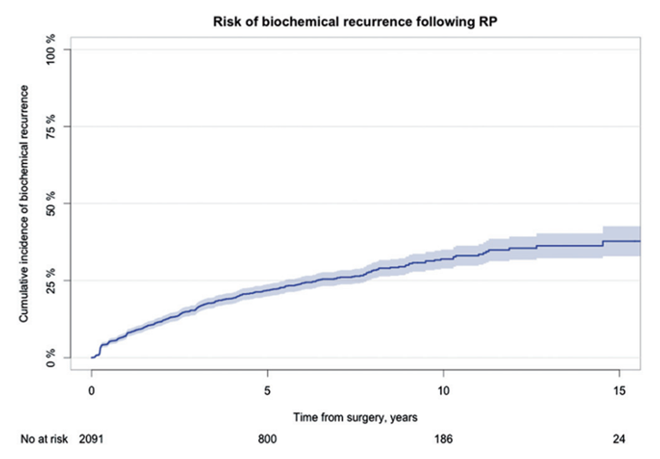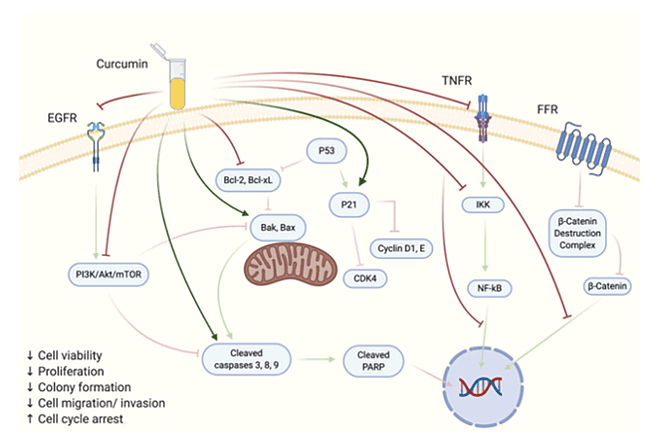How Plant-based Diet Cuts the Risk of Prostate Cancer by Half
from Integrative Cancer Care Newsletter, May 2023
New Data
In the recent American Society of Clinical Oncology (ASCO) Symposium in February 2023, scientists from the University of California, U.S., have shared a crucial finding: a plant-based diet was successful in cutting the risk of prostate cancer, i.e., the second most common cancer in men, recurrence and progression by half.
This study recruited 2,038 patients (median age of 64) with stage 1-2 prostate cancer. The patients were mostly treated with radical prostatectomy (surgery, 63%), followed by radiation therapy (22%), active surveillance without treatment (6%), hormone therapy (5%), and other means (4%). Dietary lifestyles were tracked over a median of 7.4 years.
Results showed that the top 20% quantile of patients who consumed the most plant-based foods had 53% and 52% lower risks of cancer recurrence and progression, respectively, compared to the lowest 20% quantile. Such risk protection persists regardless of participants’ age, family history of prostate cancer, socioeconomic status, walking pace (a measure of functional health) or cancer severity. This means that even the older, less healthy patients benefit from a plant-based diet.
Such findings are invaluable because the main challenge intreating prostate cancer lies in the long-term battle. Although cancer treatment has improved immensely overthe decades, increasing survival rates, the rate of cancer recurrence remains stubbornly high. Prostate cancer has a biochemical recurrence rate of 32% over a 10-year period, characterised by a rise in prostate-specific antigen levels (Figure 1). Some recurrences may even occur as metastases (cancer spread). However, the rate of prostate cancer recurrence is not fixed and often varies between 20-40%, depending on the cancer aggressiveness and lifestyle factors (e.g., diet, smoking and exercise).
“The risk of disease progression is one of many pivotal concerns for people with prostate cancer, as well as their family, caregivers and physicians,” Bradley A. McGregor, MD, a genitourinary cancer specialist from ASCO, commented in a press release of the study. “These findings may directly inform clinical care, such as providing diet recommendations for managing health, and potentially offer other positive health benefits for preventing numerous chronic diseases.
Figure 1. Overall risk of biochemical recurrence following radical prostatectomy over a 15-year period based on a cohort of 2,167 prostate cancer patients. Source: Kurbegovic et al. (2017), Scandinavian Journal of Urology.
The Pfeifer Protocol
To recapitulate, studies have demonstrated that a plant-based diet lowers the risk of prostate cancer recurrence and progression. Such findings corroborate the Pfeifer Protocol, designed to protect against such risks. The Pfeifer Protocol is not a strict treatment plan, however, as we know that every case of cancer is unique and requires personalised treatment for optimal clinical outcomes. As such, the Pfeifer Protocol offers different complementary treatment recommendations depending on the patient’s medical needs.
For prostate cancer patients who refused or underwent conventional treatments (e.g., surgery, radiotherapy, or chemotherapy) but are at risk of or are facing cancer recurrence, the Pfeifer Protocol recommends:
- ProstaSol (3×2 tablets daily):
formulation of 8 plant extracts specifically designed for prostate cancer treatment and protection from recurrence.
- CURCUMIN combi (2×2 capsules daily):
curcumin extract with enhanced bioavailability combined with Japanese knotweed extract used to defend against cancer and inflammatory diseases.
- BioBran (2×1 sachet daily for 1 month, followed by 1×1 daily):
arabinoxylan compound extracted from rice bran, which exerts potent immunomodulatory andanti-cancer effects.
- IMUSAN (2×1 capsules daily):
formulation of 15 plant extracts for general support of the immune system, which is key to controlling and suppressing cancer development.
- Aeskuplap-Sitosterol-Mix (5-10 drops under the tongue daily, if cancer severity is medium grade and above):
a tailor-made compound specific to the patient’s needs, which augments other complementary treatments in the Pfeifer Protocol.
The mechanisms and clinical efficacy of these components are too extensive to describe in this newsletter. (An example of the anti-cancer mechanisms of curcumin is depicted in Figure 2). The central principle patients need to know is that these components are rich in plant-derived bioactive compounds with potent antioxidative, anti-cancer and immunological properties.
The Pfeifer Protocol combines such compounds, designed scientifically and holistically to attack cancer and metastases, reduce inflammation associated with cancer and its progression, reduce the formation of new bloodvessels needed for cancer to grow, facilitate antioxidative effects to reduce free radical concentration, and strengthen the immune system against cancer. Patients, thus, need not consume impossibly vast amounts of vegetables and fruits to acquire the same cancer-protective benefit.
Figure 2. Mechanisms of curcumin in decreasing the cell viability, proliferation, colony formation and cell invasion, as well as promoting cell cycle arrest (apoptosis) of prostate cancer cells, mapped based on several in vitro (Petri dish) experiments. Source: Termini et al. (2020), Biomolecules.
Closing Remarks
About 10-20% of cancer survivors reported feeling fear of cancer recurrence or progression over many years. For example, in a 9-year longitudinal study of 2,417 survivors ofprostate cancer, fear of cancer recurrence affected 12% of survivors at some point in their lives. Various factors minimised such fear: a higher education level, recency since radical prostatectomy, low anxiety and, interestingly, active adjuvantor complementary therapy.
“Therefore, treating healthcare professionals should be aware of these factors in clinical practice to provide appropriate psychosocial care when needed because FCR [fear of cancerrecurrence] is among the most endorsed unmet needs and concerns in cancer survivors leading to limitations in their QOL [quality of life] and psychological well-being,” the study authors advised.
Overall, cancer recurrence is undoubtedly a major burden on the long-term well-being of cancer survivors, including prostate cancer. For the patient’s sake, a plant-based diet combined with effective phytotherapy supplements,including the Pfeifer Protocol’s complementary treatments, are highly recommended to mitigate the risk of cancer recurrence and progression, as well as the constant fear of it. For a contended quality of life, mental health is as important as physical health.





